10 ஜூலை 2020
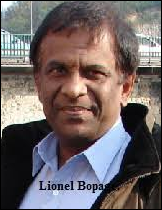 "நீண்ட தர்க்கங்கள், பிணக்குகள் மற்றும் உயர் நீதிமன்ற வழக்குகளின் பின்னர் இலங்கையின் 16 ஆவது நாடாளுமன்றத் தேர்தல் ஆகஸ்ட் மாதம் 5 ஆம் திகதி இடம்பெறவுள்ளது. அடுத்த ஐந்து ஆண்டுகளுக்கு நாட்டின் தலைவிதியை நிர்ணயிக்கவிருக்கும் நாடாளுமன்ற உறுப்பினர்களைத் தெரிவு செய்வதற்கு பலர் ஆவலுடன் காத்திருக்கின்றனர்.. அதே வேளை, எண்ணற்ற பொய்யான வாக்குறுதிகளாலும் தவறான ஊடகப் பிரச்சார மேலீட்டாலும் குழம்பிப்போயுள்ள பலர், தமது அரசியல் எதிர்காலத்தை வேறு யாரேனும் தீர்மானிக்கட்டும் என்று பேசாமல் விட்டுவிடுகின்றனர். இவ்வாறு சோர்ந்துபோய் அக்கறையின்றி இருப்போரிடமிருந்தே இத்தேர்தலில் அதிகம் எதிர்பார்க்கப்படுகிறது. ஏனெனில் உண்மையில் இவர்களால்தான் இச்சரித்திர முக்கியத்துவம் வாய்ந்த தேர்தலில் ஒரு பாரிய தாக்கத்தை ஏற்படுத்த முடியும். “
"நீண்ட தர்க்கங்கள், பிணக்குகள் மற்றும் உயர் நீதிமன்ற வழக்குகளின் பின்னர் இலங்கையின் 16 ஆவது நாடாளுமன்றத் தேர்தல் ஆகஸ்ட் மாதம் 5 ஆம் திகதி இடம்பெறவுள்ளது. அடுத்த ஐந்து ஆண்டுகளுக்கு நாட்டின் தலைவிதியை நிர்ணயிக்கவிருக்கும் நாடாளுமன்ற உறுப்பினர்களைத் தெரிவு செய்வதற்கு பலர் ஆவலுடன் காத்திருக்கின்றனர்.. அதே வேளை, எண்ணற்ற பொய்யான வாக்குறுதிகளாலும் தவறான ஊடகப் பிரச்சார மேலீட்டாலும் குழம்பிப்போயுள்ள பலர், தமது அரசியல் எதிர்காலத்தை வேறு யாரேனும் தீர்மானிக்கட்டும் என்று பேசாமல் விட்டுவிடுகின்றனர். இவ்வாறு சோர்ந்துபோய் அக்கறையின்றி இருப்போரிடமிருந்தே இத்தேர்தலில் அதிகம் எதிர்பார்க்கப்படுகிறது. ஏனெனில் உண்மையில் இவர்களால்தான் இச்சரித்திர முக்கியத்துவம் வாய்ந்த தேர்தலில் ஒரு பாரிய தாக்கத்தை ஏற்படுத்த முடியும். “
இவ்வாறு வெளிநாடுகளில் வதியும் இலங்கையின் எதிர்கால நலனை பெரிதும் விரும்பும் இலங்கையர்களின் அமைப்பு விடுத்துள்ள அறிக்கையில் தெரிவிக்கப்பட்டுள்ளது. எதிர்வரும் ஆகஸ்ட் மாதம் நடபெறவுள்ள இலங்கை நாடாளுமன்றத் தேர்தலில் மக்கள் தங்கள் பொன்னான வாக்குகளை எவ்வாறு பயன்படுத்திக்கொள்ளவேண்டும் என்பதை தெரிவிக்கும் இவ்வறிக்கையில் மேலும் தெரிவிக்கப்பட்டிருப்பதாவது: ஒரு ஜனநாயக ஆட்சி தவறிப் போகும் வேளையில் மக்கள் அமைதியாக தமது வாக்குரிமையைப் பயன்படுத்தி அதை சரிப்படுத்தல் வேண்டும். அதுவே உங்கள் வாக்கின் சக்தி. அச் சக்தியை பெருமையுடனும், புத்திசாதுரியத்துடனும் பயன்படுத்த இதுவே தக்க தருணம். அரசியலமைப்பின் 19 ஆவது திருத்தச்சட்டம் நீக்கப்படும் எனத் தற்போதைய இடைக்கால அரசு திண்ணமாகக் கூறியிருப்பதானது, கடந்த ஆட்சியின்போது ‘அதிகாரச் சமநிலையை’ ஏற்படுத்த பெரும் சிரமத்துடன் இணைத்துக் கொள்ளப்பட்ட அரசியலமைப்புத் திருத்தங்களை இல்லாதொழிக்கும் ஓர் துணிகர முயற்சியேயாகும். இந்நிலையில் அவர்கள் மீண்டும் நாட்டை ஆளத் தேர்ந்தெடுக்கப்படும் பட்சத்தில், 2015 இற்கு முந்திய தசாப்தத்தில் நிலவிய அளவுக்கு மிஞ்சிய பேராசை, ஜனாதிபதி ஆணைகள், ஆணவம் என்பன தொடரும் என்பது எண்ணிப்பார்க்க முடியாததொன்றல்ல. சர்வாதிகார ஆட்சி ஒன்றே இலங்கைக்குப் பாதுகாப்பும் பொருளாதார வளர்ச்சியும் தரக்கூடியது எனும் திட்டமிட்ட தவறான பரப்புரையானது, ‘தண்டனை விதிவிலக்குக் கலாச்சாரம்’ மற்றும் ‘அடக்குமுறைச் சமூக ஒழுங்கு’ என்பவற்றை நிறுவனமயமாக்கும் நோக்கைக் கொண்டுள்ளது.
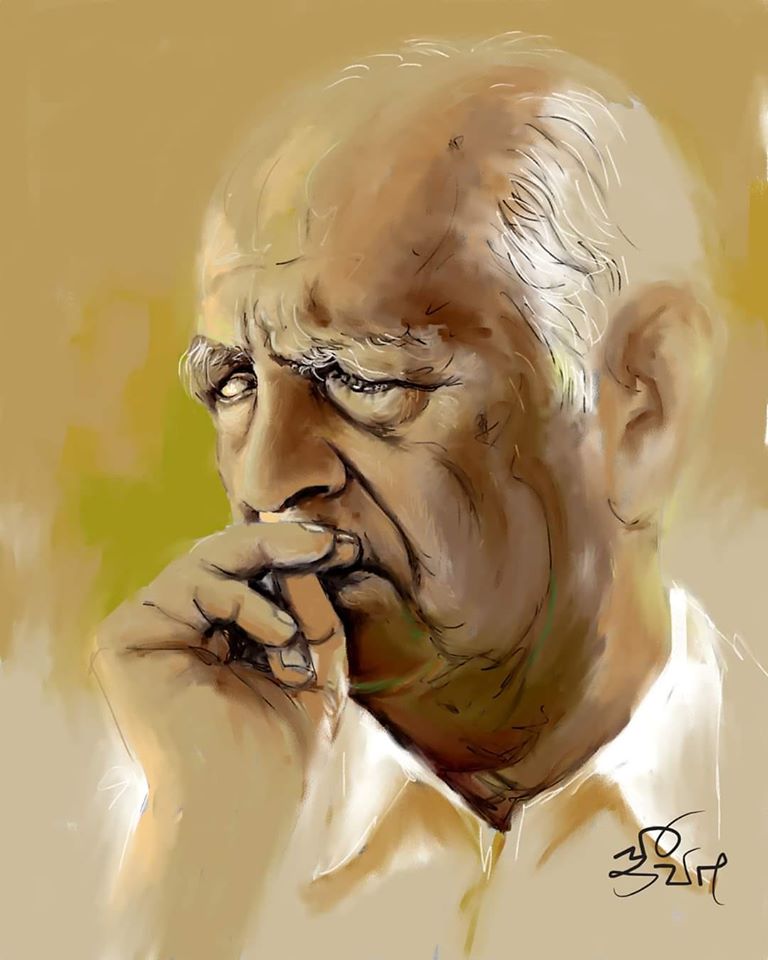 23.07.2020
23.07.2020
 கடந்த சில நாட்களாக முகநூலில் , இணையத்தில் ஒரு பெண்ணுக்கு நேர்ந்த துன்பம் பற்றிய செய்திகள் வெளியாகிக் கொண்டிருக்கின்றன. அந்தப் பெண்ணின் பெயர் எழில்வேந்தன் கோணேஸ்வரி . முன்னாள் விடுதலைப்புலிப் போராளி. இவரது சகோதரர்களும் புலிகள் இயக்கத்தில் இணைந்து போராடி மரணித்தவர்கள்., இவரது கணவரும் முன்னாள் புலிகள் இயக்கத்துப் போராளி. அவர் இறுதி யுத்தத்தில் காணாமல் போனவர்களிலொருவர். புலிகள் ஆதிக்கம் செலுத்திக்கொண்டிருந்த காலத்தில் இவரது சகோதரர் ஒருவர் அழகரட்ணம் என்பவருக்கு ரூபா 28 இலட்சம் பணம் கொடுத்து வாங்கிய காணியில் இவர் வாழ்ந்து வருகின்றார். ஆனால் அக்காணி அக்காலத்தில் முறையாக அரச காணிப்பதிவேட்டில் பதியப்படவில்லை. இவ்விதமான சூழலில் வாழ்ந்துவரும் இவர் மட்டக்களப்பு களுவாஞ்சிக்குடி பிரதேசத்தை பூர்வீகமாக கொண்டவர். செஞ்சோலையில் வாழ்ந்து வந்தவர். வாழ்க்கையே போராட்டமாக அமைந்து விட்டது இவருக்கு.
கடந்த சில நாட்களாக முகநூலில் , இணையத்தில் ஒரு பெண்ணுக்கு நேர்ந்த துன்பம் பற்றிய செய்திகள் வெளியாகிக் கொண்டிருக்கின்றன. அந்தப் பெண்ணின் பெயர் எழில்வேந்தன் கோணேஸ்வரி . முன்னாள் விடுதலைப்புலிப் போராளி. இவரது சகோதரர்களும் புலிகள் இயக்கத்தில் இணைந்து போராடி மரணித்தவர்கள்., இவரது கணவரும் முன்னாள் புலிகள் இயக்கத்துப் போராளி. அவர் இறுதி யுத்தத்தில் காணாமல் போனவர்களிலொருவர். புலிகள் ஆதிக்கம் செலுத்திக்கொண்டிருந்த காலத்தில் இவரது சகோதரர் ஒருவர் அழகரட்ணம் என்பவருக்கு ரூபா 28 இலட்சம் பணம் கொடுத்து வாங்கிய காணியில் இவர் வாழ்ந்து வருகின்றார். ஆனால் அக்காணி அக்காலத்தில் முறையாக அரச காணிப்பதிவேட்டில் பதியப்படவில்லை. இவ்விதமான சூழலில் வாழ்ந்துவரும் இவர் மட்டக்களப்பு களுவாஞ்சிக்குடி பிரதேசத்தை பூர்வீகமாக கொண்டவர். செஞ்சோலையில் வாழ்ந்து வந்தவர். வாழ்க்கையே போராட்டமாக அமைந்து விட்டது இவருக்கு.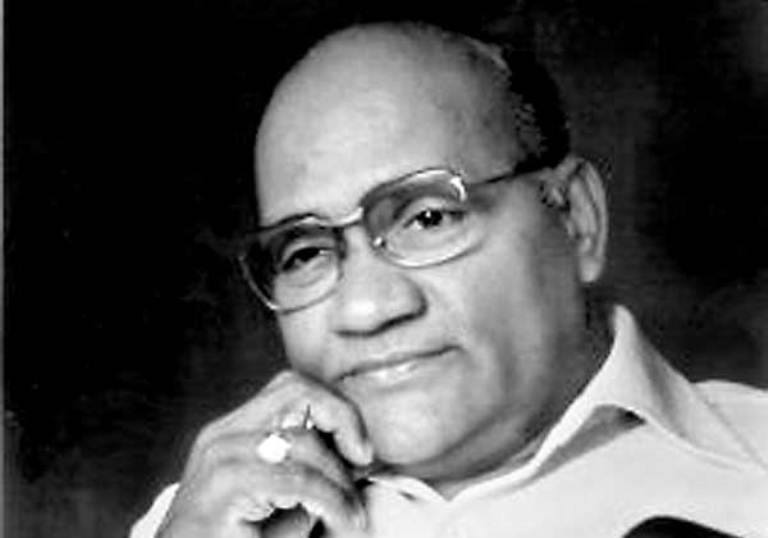 ஜூலை 13 இலங்கைத்தமிழ் மக்கள் அரசியலில் ஒரு காலத்தில் கோலோச்சிய தலைவர்களிலொருவரான , முன்னாள் தமிழர் விடுதலைக் கூட்டணித் தலைவர் அ.அமிர்தலிங்கம் அவர்களின் நினைவு தினம். அவருடன் கூடவே முன்னாள் யாழ் பாராளுமன்ற உறுப்பினரான யோகேஸ்வரனின் நினைவு தினமும் கூட. மே மாதம் போல் யூலை மாதமும் இலங்கைத் தமிழர்கள் வாழ்வில் பல மாற்றங்களை , அழிவுகளை ஏற்படுத்திய மாதம். அமிர்தலிங்கம் அவர்களைப்பொறுத்தவரையில் என்னால் அவரை ஒரு போதுமே மறந்துவிட முடியாது.
ஜூலை 13 இலங்கைத்தமிழ் மக்கள் அரசியலில் ஒரு காலத்தில் கோலோச்சிய தலைவர்களிலொருவரான , முன்னாள் தமிழர் விடுதலைக் கூட்டணித் தலைவர் அ.அமிர்தலிங்கம் அவர்களின் நினைவு தினம். அவருடன் கூடவே முன்னாள் யாழ் பாராளுமன்ற உறுப்பினரான யோகேஸ்வரனின் நினைவு தினமும் கூட. மே மாதம் போல் யூலை மாதமும் இலங்கைத் தமிழர்கள் வாழ்வில் பல மாற்றங்களை , அழிவுகளை ஏற்படுத்திய மாதம். அமிர்தலிங்கம் அவர்களைப்பொறுத்தவரையில் என்னால் அவரை ஒரு போதுமே மறந்துவிட முடியாது. 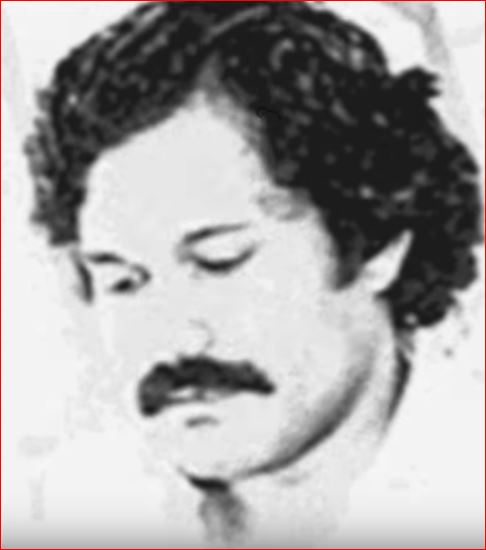 இவர் இலங்கைத்தமிழர் விடுதலைக்காக ஆயுதம் தாங்கிய போராட்ட அமைப்புகளின் தலைவர்களில் வித்தியாசமானவர். இவர் ஆயுதப்போராட்டத்தில் குதிப்பதற்கு முன்னர் இவருக்கு வயது முப்பதைத்தாண்டி விட்டிருந்தது. தமிழர் விடுதலைக்கூட்டணியின் இளைஞர் அணியில் நீண்ட காலம் இயங்கியிருக்கின்றார்.அதன் காரணமாகத் தமிழ் அரசியல்வாதிகளுடன் நன்கு பழகியிருந்தார். அரசியல் பற்றிய புரிதல் நிறைய இவருக்கிருந்தது. பொதுவாக அடக்குமுறைகளுக்கு எதிராக உணர்ச்சி வசப்பட்டு இளம் வயதில் ஆயுதம் தூக்கியவர் என்பதற்கு மாறாக, நடுத்தர வயதினை நெருங்கிக்கொண்டிருந்த சமயத்தில், நல்லதொரு உத்தியோகம் உள்ள நிலையில் அதனை உதறிவிட்டுப் போராட்டத்துடன் தன்னைப் பிணைத்துக்கொண்டவர். இவரது வயது, அறிவு இவைதாம் இவரை ஆரம்பத்தில் போராட்ட அமைப்பின் தலைவராக்கியது.
இவர் இலங்கைத்தமிழர் விடுதலைக்காக ஆயுதம் தாங்கிய போராட்ட அமைப்புகளின் தலைவர்களில் வித்தியாசமானவர். இவர் ஆயுதப்போராட்டத்தில் குதிப்பதற்கு முன்னர் இவருக்கு வயது முப்பதைத்தாண்டி விட்டிருந்தது. தமிழர் விடுதலைக்கூட்டணியின் இளைஞர் அணியில் நீண்ட காலம் இயங்கியிருக்கின்றார்.அதன் காரணமாகத் தமிழ் அரசியல்வாதிகளுடன் நன்கு பழகியிருந்தார். அரசியல் பற்றிய புரிதல் நிறைய இவருக்கிருந்தது. பொதுவாக அடக்குமுறைகளுக்கு எதிராக உணர்ச்சி வசப்பட்டு இளம் வயதில் ஆயுதம் தூக்கியவர் என்பதற்கு மாறாக, நடுத்தர வயதினை நெருங்கிக்கொண்டிருந்த சமயத்தில், நல்லதொரு உத்தியோகம் உள்ள நிலையில் அதனை உதறிவிட்டுப் போராட்டத்துடன் தன்னைப் பிணைத்துக்கொண்டவர். இவரது வயது, அறிவு இவைதாம் இவரை ஆரம்பத்தில் போராட்ட அமைப்பின் தலைவராக்கியது.  "நீண்ட தர்க்கங்கள், பிணக்குகள் மற்றும் உயர் நீதிமன்ற வழக்குகளின் பின்னர் இலங்கையின் 16 ஆவது நாடாளுமன்றத் தேர்தல் ஆகஸ்ட் மாதம் 5 ஆம் திகதி இடம்பெறவுள்ளது. அடுத்த ஐந்து ஆண்டுகளுக்கு நாட்டின் தலைவிதியை நிர்ணயிக்கவிருக்கும் நாடாளுமன்ற உறுப்பினர்களைத் தெரிவு செய்வதற்கு பலர் ஆவலுடன் காத்திருக்கின்றனர்.. அதே வேளை, எண்ணற்ற பொய்யான வாக்குறுதிகளாலும் தவறான ஊடகப் பிரச்சார மேலீட்டாலும் குழம்பிப்போயுள்ள பலர், தமது அரசியல் எதிர்காலத்தை வேறு யாரேனும் தீர்மானிக்கட்டும் என்று பேசாமல் விட்டுவிடுகின்றனர். இவ்வாறு சோர்ந்துபோய் அக்கறையின்றி இருப்போரிடமிருந்தே இத்தேர்தலில் அதிகம் எதிர்பார்க்கப்படுகிறது. ஏனெனில் உண்மையில் இவர்களால்தான் இச்சரித்திர முக்கியத்துவம் வாய்ந்த தேர்தலில் ஒரு பாரிய தாக்கத்தை ஏற்படுத்த முடியும். “
"நீண்ட தர்க்கங்கள், பிணக்குகள் மற்றும் உயர் நீதிமன்ற வழக்குகளின் பின்னர் இலங்கையின் 16 ஆவது நாடாளுமன்றத் தேர்தல் ஆகஸ்ட் மாதம் 5 ஆம் திகதி இடம்பெறவுள்ளது. அடுத்த ஐந்து ஆண்டுகளுக்கு நாட்டின் தலைவிதியை நிர்ணயிக்கவிருக்கும் நாடாளுமன்ற உறுப்பினர்களைத் தெரிவு செய்வதற்கு பலர் ஆவலுடன் காத்திருக்கின்றனர்.. அதே வேளை, எண்ணற்ற பொய்யான வாக்குறுதிகளாலும் தவறான ஊடகப் பிரச்சார மேலீட்டாலும் குழம்பிப்போயுள்ள பலர், தமது அரசியல் எதிர்காலத்தை வேறு யாரேனும் தீர்மானிக்கட்டும் என்று பேசாமல் விட்டுவிடுகின்றனர். இவ்வாறு சோர்ந்துபோய் அக்கறையின்றி இருப்போரிடமிருந்தே இத்தேர்தலில் அதிகம் எதிர்பார்க்கப்படுகிறது. ஏனெனில் உண்மையில் இவர்களால்தான் இச்சரித்திர முக்கியத்துவம் வாய்ந்த தேர்தலில் ஒரு பாரிய தாக்கத்தை ஏற்படுத்த முடியும். “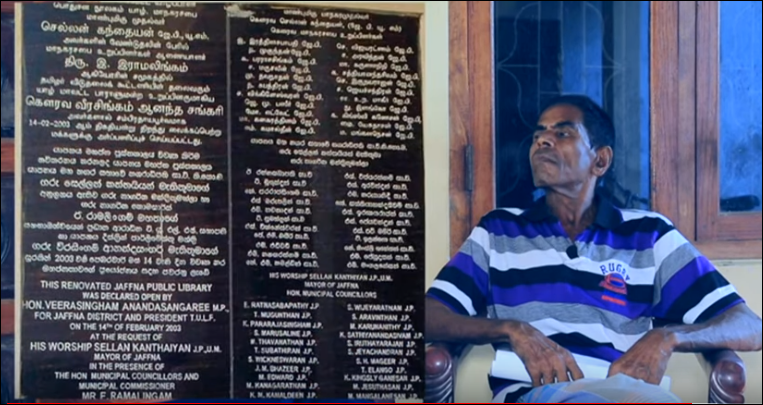 அண்மையில் முனைவர் செல்லத்துரை சுதர்சனுக்கு அளித்த நேர்காணலில் முன்னாள் யாழ் மாநகரசபையின் முதல்வராகவிருந்த செல்லன் கந்தையன் அவர்கள் குறிப்பிட்ட ஒருவிடயம் என் கவனத்தை ஈர்த்தது.
அண்மையில் முனைவர் செல்லத்துரை சுதர்சனுக்கு அளித்த நேர்காணலில் முன்னாள் யாழ் மாநகரசபையின் முதல்வராகவிருந்த செல்லன் கந்தையன் அவர்கள் குறிப்பிட்ட ஒருவிடயம் என் கவனத்தை ஈர்த்தது.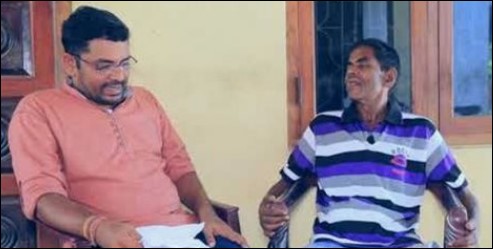 அண்மையில் முனைவர் செல்லத்துரை சுதர்சன் அவர்கள் யாழ் மாநகரசபையின் முன்னாள் மேயரான செல்லன் கந்தையா அவர்களுடன் நடாத்திய நேர்காணலிது. இது பற்றி முகநூலில் காரசாரமாக விவாதங்கள் நடந்துகொண்டிருக்கும் சூழலில் வெளிவந்திருப்பதால் இதற்கொரு முக்கியத்துவமுண்டு. இந்த நேர்காணல் பல விடயங்களை வெளிக்காட்டியுள்ளது. அவை:
அண்மையில் முனைவர் செல்லத்துரை சுதர்சன் அவர்கள் யாழ் மாநகரசபையின் முன்னாள் மேயரான செல்லன் கந்தையா அவர்களுடன் நடாத்திய நேர்காணலிது. இது பற்றி முகநூலில் காரசாரமாக விவாதங்கள் நடந்துகொண்டிருக்கும் சூழலில் வெளிவந்திருப்பதால் இதற்கொரு முக்கியத்துவமுண்டு. இந்த நேர்காணல் பல விடயங்களை வெளிக்காட்டியுள்ளது. அவை: இன்று அமெரிக்காவெங்கும் ஒலித்துக்கொண்டிருக்கும் போர்க் குரல் இது.
இன்று அமெரிக்காவெங்கும் ஒலித்துக்கொண்டிருக்கும் போர்க் குரல் இது.

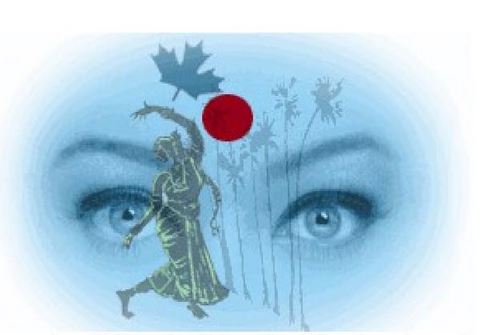 பதிவுகள். காம் மின்னூல் தொகுப்புகள்
பதிவுகள். காம் மின்னூல் தொகுப்புகள் 










